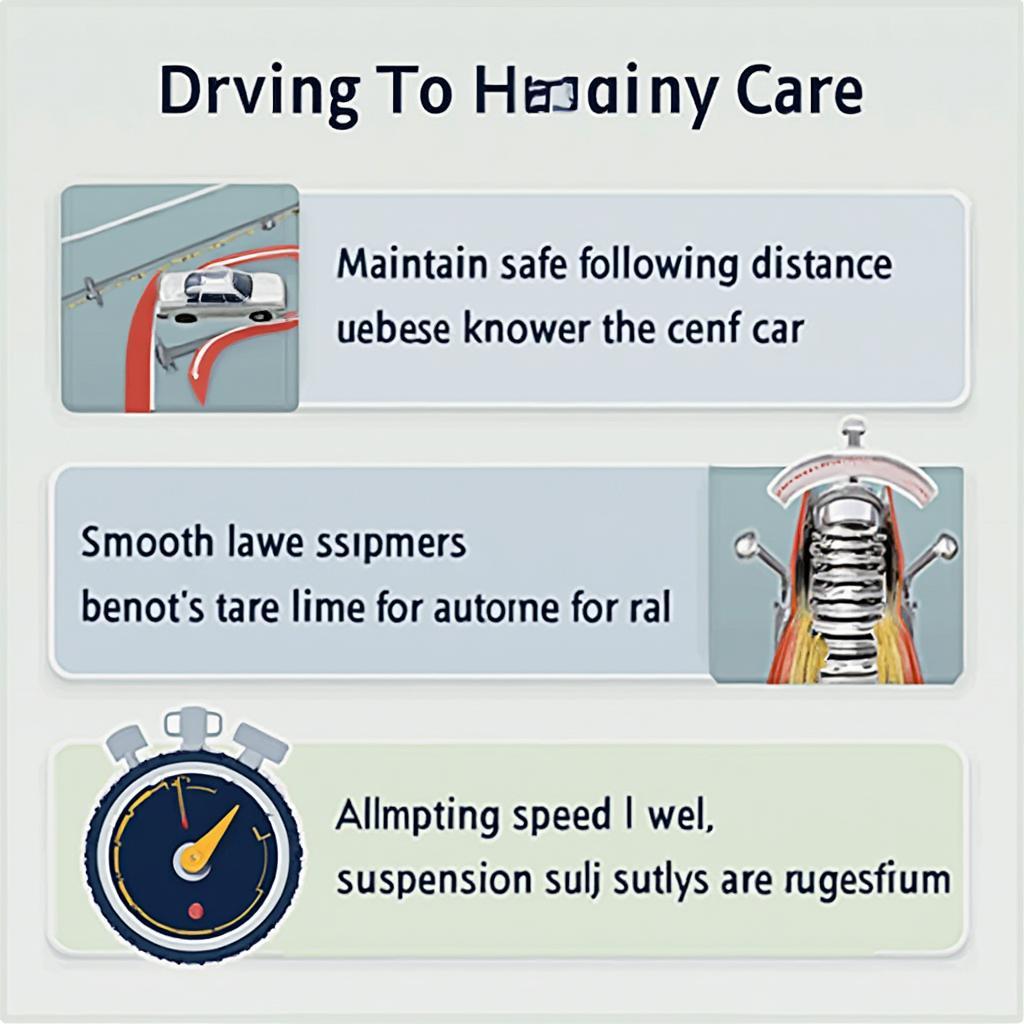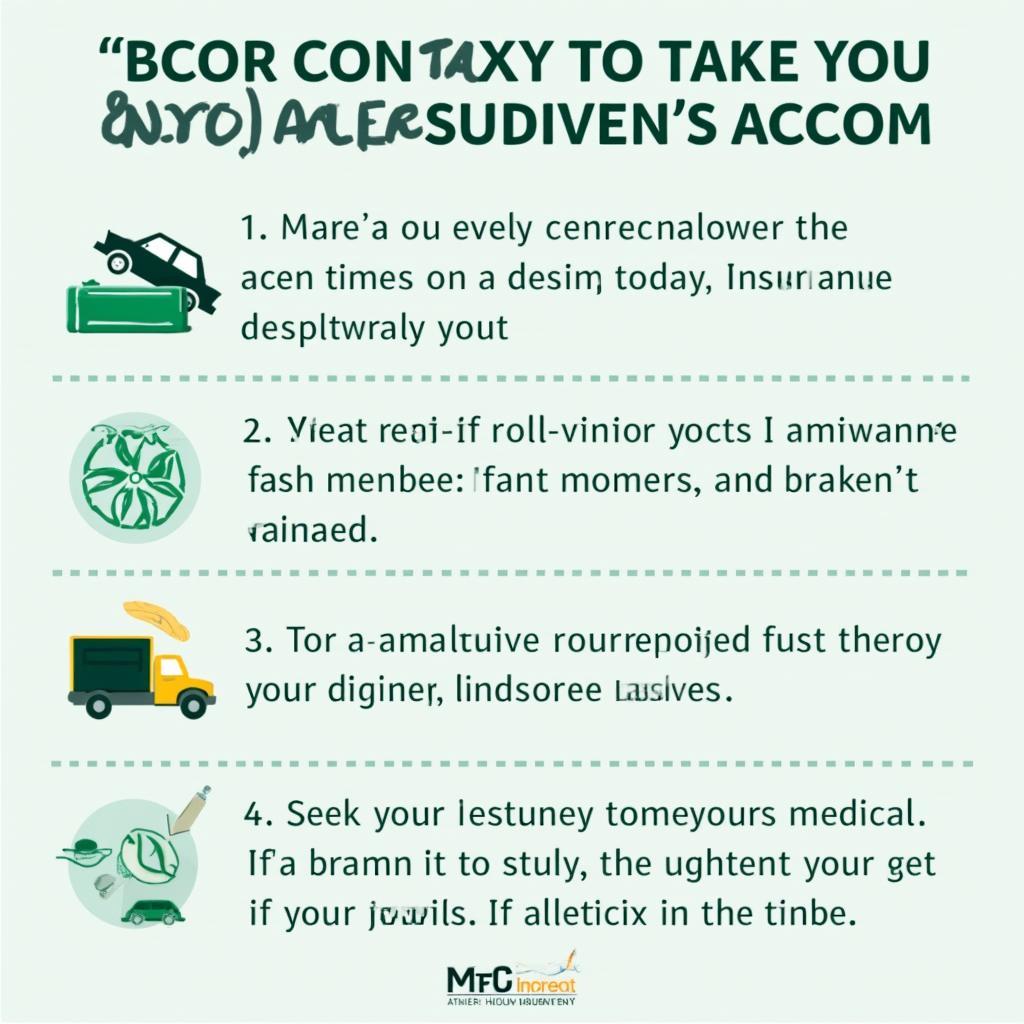Your cart is currently empty!

Car Tips Over on Highway: Stay Safe and Informed
Car Tips Over On Highway incidents can be terrifying and dangerous. Understanding the causes, prevention strategies, and proper responses can significantly improve your safety on the road. This guide provides essential information to help you navigate these situations effectively.
Understanding Why Cars Tip Over on Highways
Several factors contribute to highway rollovers. High speeds, sharp turns, and sudden maneuvers can destabilize a vehicle, especially high-center-of-gravity vehicles like SUVs and trucks. Road conditions, such as uneven surfaces or debris, can also play a role. Driver error, including distracted driving, speeding, and overcorrecting, is a significant contributing factor.
Knowing these common causes is the first step in preventing such accidents. Being aware of your surroundings and driving defensively can drastically reduce your risk. For instance, maintaining a safe following distance gives you more time to react to unexpected events and avoid sudden braking or swerving, which can lead to a rollover.
Check out our tips while learning driving a car for more foundational driving safety information.
Preventing Highway Rollovers: Proactive Car Tips
One of the most crucial car tips over on highway safety is proper vehicle maintenance. Regular tire pressure checks are essential, as under-inflated tires can compromise stability. Ensure your vehicle’s suspension system is in optimal condition for better handling and control. Additionally, avoid overloading your vehicle, as excess weight raises the center of gravity and increases the risk of a rollover.
Beyond vehicle maintenance, driving habits are paramount. Avoid sudden, jerky movements. When turning or changing lanes, do so smoothly and gradually. Always adhere to speed limits, particularly in adverse weather conditions. Be mindful of blind spots and use your mirrors frequently to monitor your surroundings.
 Highway Rollover Prevention Tips
Highway Rollover Prevention Tips
What to Do if Your Car Starts to Tip
Despite preventative measures, rollovers can still occur. If you feel your car starting to tip, try to remain calm. Avoid slamming on the brakes, as this can worsen the situation. Instead, try to steer gently in the direction of the skid and gradually ease off the gas pedal. Once the vehicle has stopped, remain inside until it’s safe to exit. If the car lands on its roof, try to brace yourself against the seat or the steering wheel to minimize injury.
After the incident, prioritize safety. Assess yourself and any passengers for injuries. If possible, move to a safe location away from the vehicle and contact emergency services. Document the scene with photos or videos if you can safely do so. This documentation can be helpful for insurance purposes and accident investigations.
Refer to our tips for traveling solo with kids car for guidance on ensuring the safety of young passengers during car travel.
Navigating the Aftermath of a Rollover
Dealing with the aftermath of a car tips over on highway incident can be stressful. Contact your insurance company as soon as possible to report the accident. They will guide you through the claims process. You may also need to file a police report. Keep detailed records of all expenses related to the incident, including medical bills, vehicle repairs, and towing costs.
 Post-Rollover Checklist
Post-Rollover Checklist
The Importance of Advanced Safety Features
Modern vehicles often come equipped with advanced safety features that can help mitigate the risk of rollovers. Electronic Stability Control (ESC) can detect and correct skids, helping to prevent loss of control. Roll Stability Control (RSC) specifically targets rollovers by applying brakes and reducing engine power when it senses an imminent rollover. Familiarize yourself with these features and understand how they function.
“Investing in a vehicle with these advanced safety features can be a lifesaver, especially for those who frequently drive on highways,” says automotive safety expert, Dr. Robert Miller, from the National Highway Safety Institute.
Conclusion: Stay Safe on the Highways
Car Tips over on highway incidents are preventable with the right knowledge and proactive measures. Understanding the causes, practicing safe driving habits, and maintaining your vehicle properly are crucial steps. Knowing what to do if a rollover occurs can also minimize injuries and help you navigate the aftermath effectively. Prioritizing safety on the road is paramount, and by following these tips, you can significantly reduce your risk and enjoy safer highway travel. For more information on fuel efficiency, which can also contribute to overall safety by reducing the need for frequent stops, visit our article on tips on making your car more fuel efficient. You can also find helpful advice on best car shopping tips if you are considering a new vehicle.
FAQ
- What is the most common cause of highway rollovers? Driver error, including speeding, distracted driving, and overcorrecting.
- How can I prevent my car from tipping over? Maintain proper tire pressure, avoid sudden maneuvers, and adhere to speed limits.
- What should I do if my car starts to tip? Steer gently in the direction of the skid, ease off the gas, and avoid slamming on the brakes.
- What safety features can help prevent rollovers? Electronic Stability Control (ESC) and Roll Stability Control (RSC).
- What should I do after a rollover accident? Contact emergency services, your insurance company, and document the scene.
“Regular vehicle maintenance checks are not just about keeping your car running smoothly; they’re a crucial part of preventing highway rollovers,” adds Michael Stevens, Lead Mechanic at AutoSafe Solutions.
Do you have other car-related questions or concerns? Perhaps you need tips for renting a car in a foreign city like Lisbon? Check out our guide on renting a car in lisbon tips.
Need further assistance? Contact us via WhatsApp: +1(641)206-8880 or Email: [email protected]. Our customer support team is available 24/7.

Leave a Reply